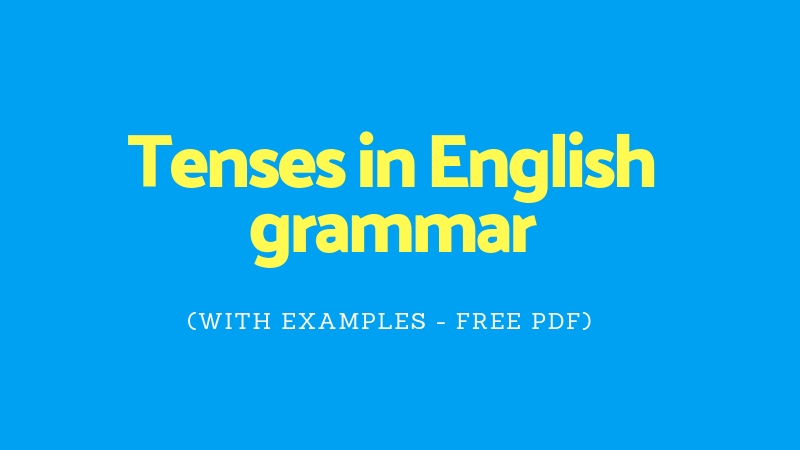TENSES IN ENGLISH GRAMMAR (WITH EXAMPLES)
To learn English, you absolutely must know an essential grammar point: conjugation. At first sight, the functioning of the English conjugation seems pretty easy, but it’s more complex than it seems.
This page will help you with the different uses and forms of English verbs, presented with the essential points in three sections: past, present and future.
All the ‘technical terms’ in each lessons are explained simply but in a complete way. If you’re a teacher, you can also use them if you are teaching ESL (English as a Second Language).
You’ll learn:
- The basic rules for mastering English conjugation
- When to use the tense
- How to use it with many examples
- Some tips and the mistakes to avoid
You can download a free tenses chart here
I hope that this page about the tenses in English grammar will answer all your questions on the subject so they will have no secrets for you!
PRESENT
- Present Simple (I go, I work…)
- Present continuous/progressive (I am doing)
- Present simple VS Present continuous? Which one should I use?
- Present Perfect tense (I have been, She has played…)
- Present Perfect Continuous (I’ve been playing)
PAST
- Past Simple tense (I did, I was, I went, I worked…)
- Past Continuous/Progressive (I was doing, you were working…)
- Past Perfect (I had played)
- Past Perfect Continuous (I had been playing…)
FUTURE
- Future Simple (I will)
- Future Simple (I’m going to)
- Future Progressive (I will be playing)
- Future Perfect (I will have played)
- Future Perfect Continuous (I will have been playing)
©Englishfornoobs.com
